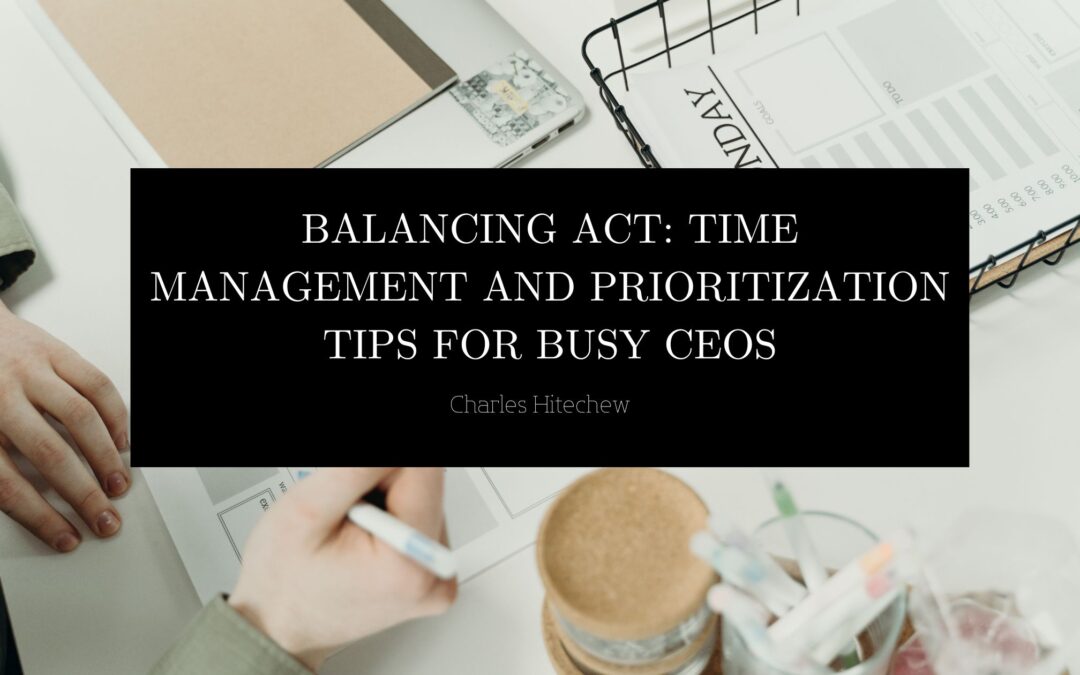Being a CEO is no easy feat. The demands of running a company, making strategic decisions, and leading a team can quickly become overwhelming. However, effective time management and prioritization are key skills that can help CEOs navigate their busy schedules while achieving optimal results. Here are some valuable tips to help busy CEOs strike the right balance:
- Set Clear Goals
Define your short-term and long-term goals for both your company and personal life. Clear objectives will guide your decisions and help you allocate your time and resources effectively.
- Prioritize Tasks
Identify tasks that are high-impact and directly contribute to your company’s success. Use techniques like the Eisenhower Matrix to categorize tasks as urgent, important, or both. Focus on tasks that fall into the “urgent and important” quadrant.
- Delegate Wisely
Recognize that you can’t do everything on your own. Delegate tasks that can be handled by other team members, allowing you to focus on strategic matters that require your expertise.
- Time Blocking
Use time blocking to allocate specific time slots for different tasks. This technique helps you avoid multitasking and ensures you give your full attention to each task. Set aside time for meetings, strategic planning, and focused work.
- Limit Multitasking
Multitasking can lead to decreased productivity and increased stress. Focus on one task at a time to complete it efficiently and with higher quality.
- Learn to Say No
As a CEO, you’ll likely receive numerous requests for your time and attention. Evaluate whether each request aligns with your goals and priorities. Politely decline opportunities that don’t contribute to your overall objectives.
- Embrace Technology
Utilize productivity tools and apps to streamline your tasks and stay organized. Calendar apps, project management software, and communication tools can help you manage your time more effectively.
- Schedule Downtime
Taking breaks and having downtime is essential for maintaining your energy and focus. Schedule short breaks throughout your day and dedicate time for relaxation and self-care.
- Focus on Results, Not Busyness
It’s easy to get caught up in the busyness of tasks without making progress. Focus on achieving results rather than simply being busy. Evaluate whether your actions are moving the needle toward your goals.
- Reflect and Adjust
Regularly review your schedule and assess your time management strategies. Identify areas where you can improve and make adjustments accordingly.
- Practice Self-Care
Prioritize your well-being. Adequate sleep, regular exercise, and a balanced diet contribute to your ability to manage your time effectively.
- Learn from Others
Seek advice from successful CEOs and leaders who have mastered the art of time management. Learn from their experiences and apply their strategies to your own routine.
Time management and prioritization are crucial skills for CEOs to master. By setting clear goals, prioritizing tasks, delegating effectively, and using tools like time blocking and technology, you can navigate your busy schedule while achieving meaningful results. Remember that effective time management isn’t about working harder; it’s about working smarter to create more value for your company and yourself.

